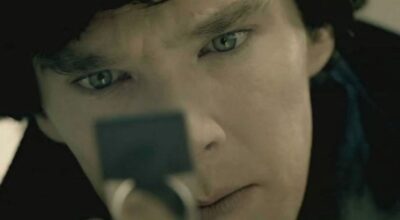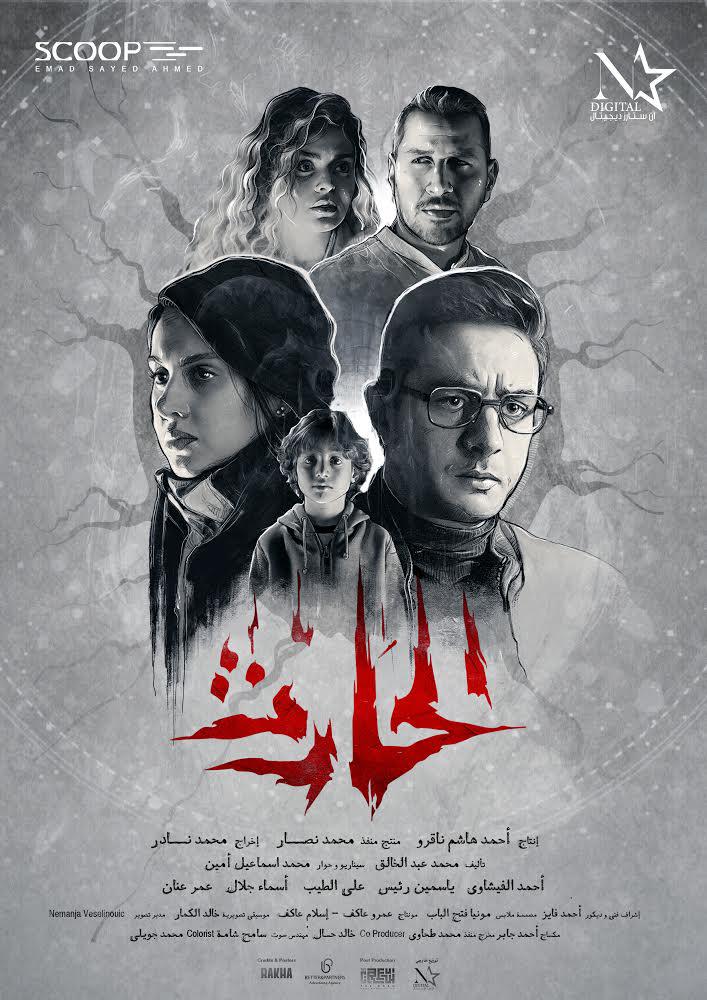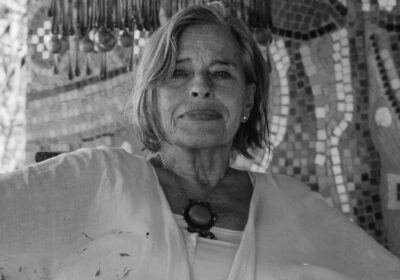Some of the best movies are the ones that have you at the edge of your seat, anxiously waiting, and hoping for the best because in that hour and a half, you’ve entered a story led by characters and a plot line that seems to keep getting more intense by the minute. Arguably, “Al-Harith” is a lot like that.
Directed by Mohamed Nader and written by Mohamed Abdel Khalek, the new psychological thriller film, “Al-Harith” was recently released on Shahid, a streaming platform. For those who haven’t yet seen the film, it’s surely worth the watch.
Without giving any major spoilers, the film follows the story of a married couple; Youssef and Farida (played by Ahmed Al Fishawy and Yasmin Raeis) who go to Siwa on their honeymoon. From then on, they begin to experience supernatural events that seem to plague their lives forever due to the presence of a ‘devil’. Particularly Farida and the son, Omar suffer.
But of course, it is much more than just that simple plot-line description. The film also tackles a variety of subjects such as, family dynamics, relationships with friends, drugs and substance abuse, hallucinations, and dealing with mental health.
The Film, The Director & Beyond The Screen
925 spoke with Nader, the film’s director on the production of the movie, the themes, the characters, and its iconic scenes.
Nader produced different kinds of short films, worked on documentaries, and also teaches film production at Studio Zat. Although he didn’t personally graduate with a film-making degree, his passion to work in the industry led him towards this path. And Al-Harith is not the last film he’ll be working on, as more is yet to come and yet to be announced. Although, Nader’s personal favorite genre is thrillersc, he enjoys, and wants to work with other genres too, such as romance and comedy.
For those who don’t like ‘horror’, Al-Harith is not at all horror. Nader explained that, “the fact that it got categorized as a ‘horror’ movie is completely false.” Instead, the film plays with suspense in music, lighting, shadows, and sounds.
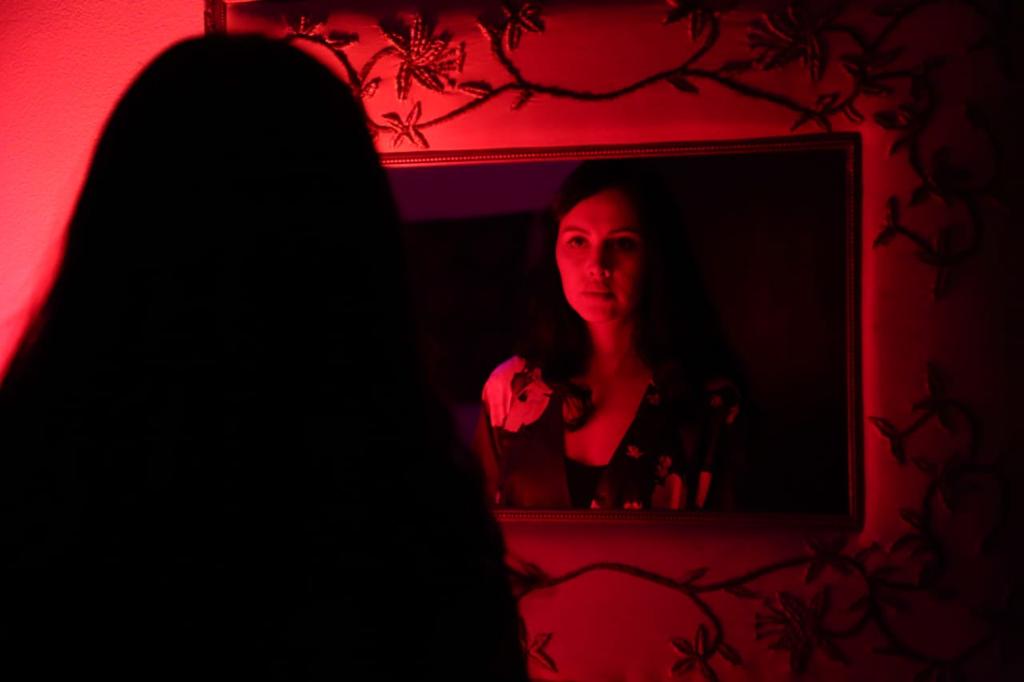
Still from Al-Harith
“This is why it isn’t a horror movie. Viewers stay at the edge of their seat the whole time and are stressed over the things that they can’t actually see. The whole time, we are on edge because of this dangerous feeling that never goes away. I was playing on the viewer’s subconscious,” the director added. And perhaps this is the true beauty of the film. We know there is a ‘devil’ but we don’t actually see a mortifying figure of some sort on camera.
Interestingly enough, it’s safe to say that there is no guarantee that the “devil” is a supernatural creature in that sense. This is something that goes back to the title of the film “Al-Harith”
“Al-Harith is one of the devils’ names that isn’t fully agreed on. This is why it fits the film. The devil in the film might be an actual ‘devil’, but it also might not be. Is it a devil or is it a human touched by the devil?” asked the director. This brings into question several supporting characters; Sherri (Farida’s friend) and Kamal (Youssef’s friend, who seemingly has a relationship with Farida).
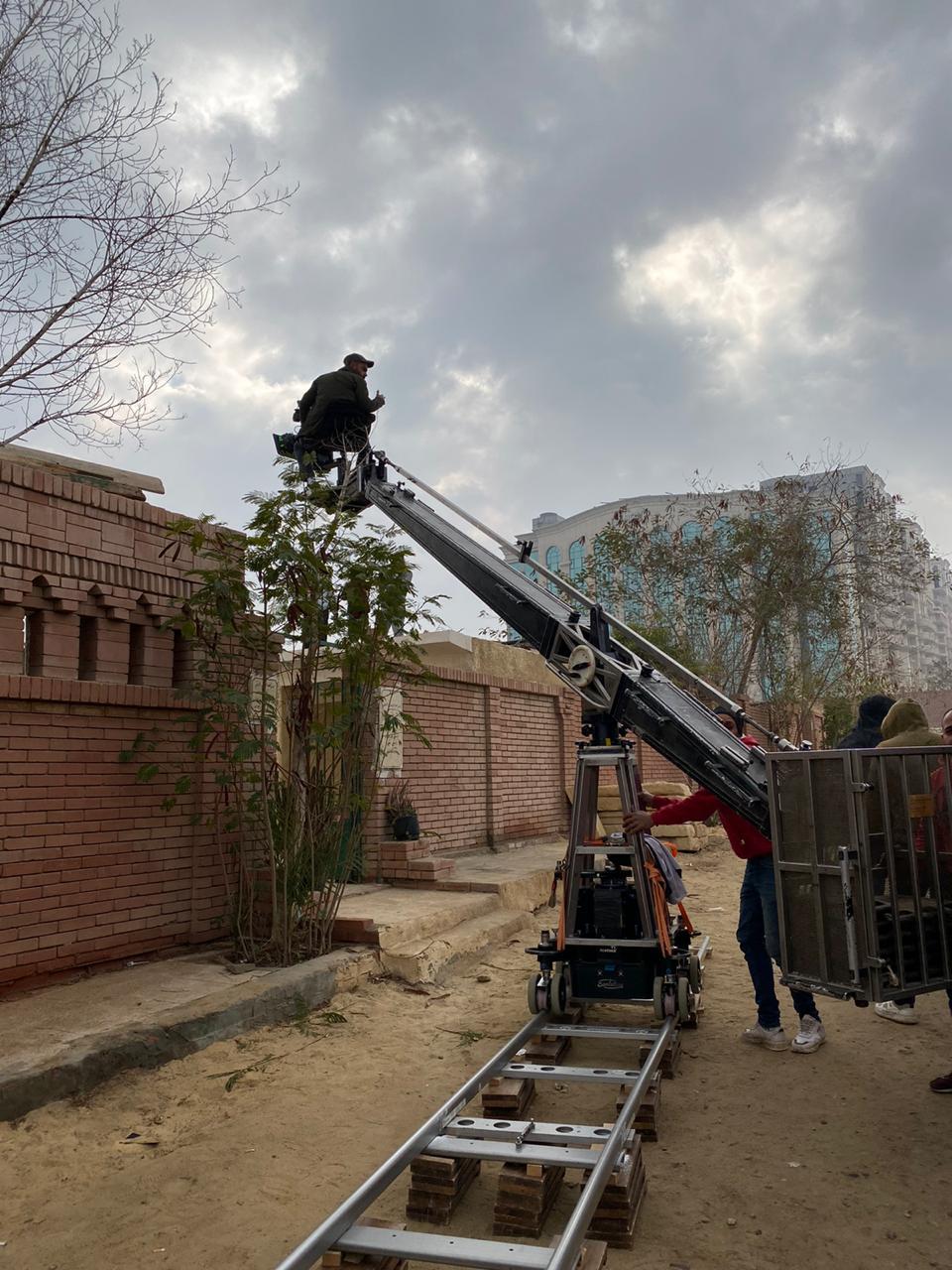
Still from Al-Harith
Rumors have circulated that the film is based on a true story. Nader clarified that this is not entirely true. The film was inspired by various events that took place separately, some of which happened in Siwa, but it is not one full real-life-based story. However, what is real is that shooting the film was a sure challenge.
“The film was shot in 17 days and all locations are real. For example, when the characters were in Siwa, we were actually in Siwa. When the characters were at the ‘Daggal’ (witch doctor), we were in the real Azhar street…To have all this done in 17 days was challenging. Filming in streets is very difficult because people crowd around the set and often this causes interference in the sound,” he shared.
But nonetheless, the film was produced.
The Plot, Iconic Scenes & Character Details
Before you keep reading, we are giving you a fair and honest warning that the next few paragraphs have spoilers.
It was established earlier that the plot revolves around a married couple’s lives and that of a devil. But as previously hinted, there are two special characters that play a role in plot development: Sherri and Kamal.
From the get-go, viewers can tell that the married couple, Farida and Youssef, have their issues. On the surface level, they are issues any couple can face. Very simply, their child Omar is unable to speak and they spend days on end trying to figure out why. While they go through this dilemma, it’s clear that Farida and Youssef have different approaches to handling the situation and refuse to hear each other out. Instead, they turn to their friends; Farida with Sherri, and Youssef with Kamal.
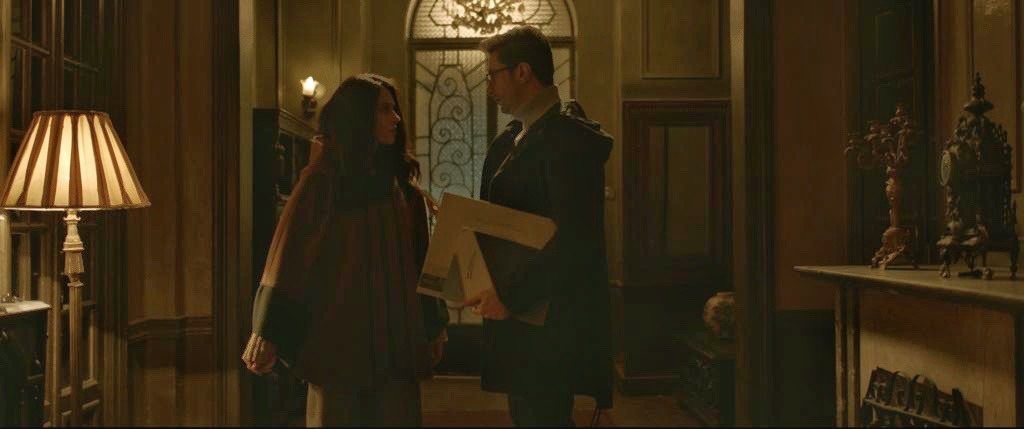
Still from Al-Harith
Interestingly and while the husband initially denies it, Farida is first to notice paranormal activity that is heightened by the unfortunate and sudden death of Omar.
The death of Omar is an iconic scene, which the director shared was critical in the development of the film. “Before the death of the son, there was this uncomfortable silence where we know something will happen, but it’s unclear what that something is yet. The son’s death also happened really fast because we don’t even see exactly how it happens. The family goes to sleep, and the next morning, they find that Omar fell from the window and is lying on the floor outside the building,” Nader said.
Other than the fact this is potentially the moment Farida truly realizes something is ‘very wrong’, this difficult scene was also the film’s turning point and climax. Inevitably, this complicates the couple’s relationship and creates major distrust between the two.
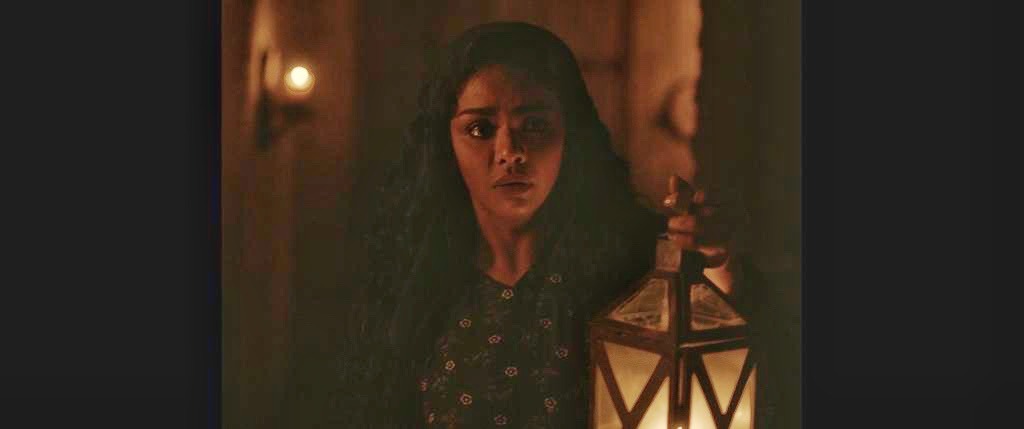
Arguably, what keeps pushing them further apart is the devil, or rather Kamal. It’s unclear who the devil is, but Kamal, a character who although doesn’t show much evil intent in the beginning, is found to be rather guilty towards the end. Luckily, when this discovery is made clear to Farida, she becomes clear-minded. This is just one of many examples in the film where the constant element of surprise is emphasized.
Dreams Vs. Reality
It’s important to see that a huge part of the element of surprise comes from uncertainty. This includes uncertainty in the lives of the characters and the viewers too, because who can we really trust when the main characters themselves are lost? The use of dreams, hallucinations and confusion really takes its toll on the film when Farida and Sherri visit the witch doctor. It only gets more and more intensified when Farida is under the influence of drugs and alcohol.
Generally, the viewers mostly see the story from Farida’s point of view. When Farida starts hallucinating and having conversations with people in her subconscious, it’s tricky to tell reality and dreams apart.
But this is what a thriller is supposed to be like. “Thrillers thrive on being able to give information one thing at a time alongside surprises. Kamal is far from the story, and yet he is a huge part of it in the end. The writers of thrillers need to think how the audience will think to be able to surprise them,” said Nader.
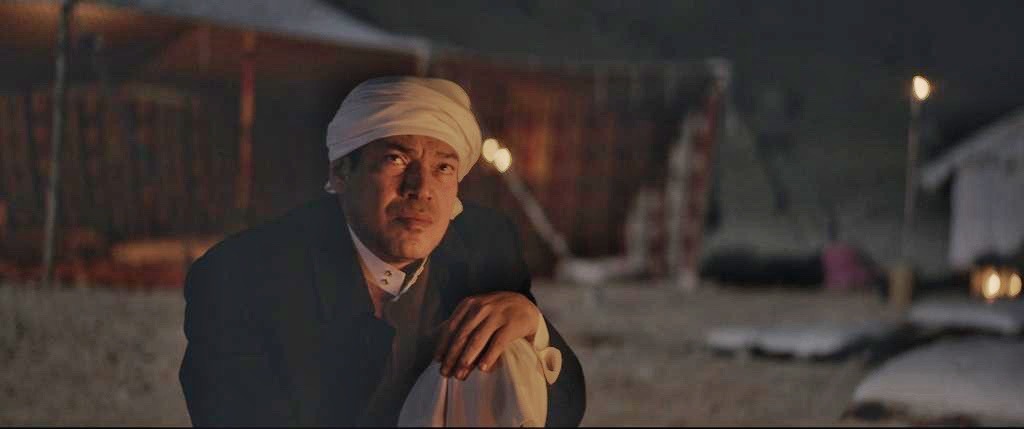
Still from Al-Harith
Part of the surprise is that the film starts and ends with Siwa. Towards the end of the film, the couple go back to Siwa as a way to relax and forget their problems, but it goes without saying that all hell breaks loose. In their second, and possibly last visit to Siwa, it all still feels like a hallucination between Kamal’s presence, the son’s dream-like appearance and a final showdown between Youssef and Kamal over Farida. Only one man stands to win.
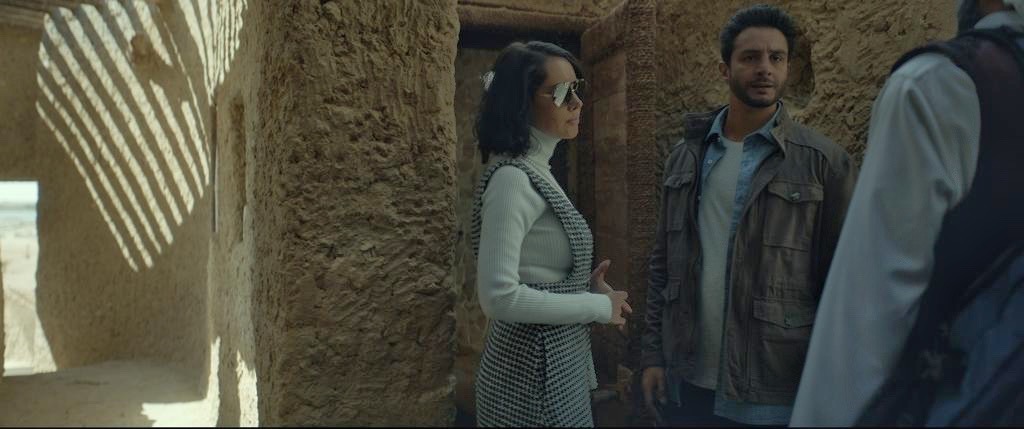
Still from Al-Harith
Nader explained that, beyond the screen, the film tackles the war between evil and good throughout and that is what is shown in the ending.
“There are several battles; and good and evil get their chance to win, but the actual war itself hasn’t ended. This is the bigger, life-related meaning. This is what life is like. You win some and you lose some, but life always has a struggle depending on what phase and age you are in. And outcomes in life depend on people,” the director expressed.
Speaking of outcomes, everyone has different life goals. If one of your life goals is to be a filmmaker or director like Nader, it’s up to you to achieve that, the director said. “If you want to be a filmmaker, you have to make films. And there are so many ways to showcase your movies now and YouTube is one of them. You can also use your phones for filming now because today’s phone cameras have developed too,” Nader said. The whole point, he explained, is to make films you care about on stories that you want to work on.






